In this article
Regurgitation is defined as an action where something that was swallowed (usually food) is brought up again to the mouth. In dogs, this is also often accompanied by the expulsion of the food from their mouth. For many pet owners, the sight of their beloved pup regurgitating food is often upsetting. Such a reaction is warranted, as in most cases, regurgitation isn’t considered normal. To make matters worse, it may also be confused with vomiting.
The best way to prevent regurgitation is by addressing its underlying cause. In this article, we’ll explain what regurgitation is, how it’s different from vomiting, and what you can do if you observe your pup regurgitating its food.

What Is Regurgitation In Dogs?
As previously explained, regurgitation is an action where something your pup eats is brought up again to the mouth and, for dogs, is often accompanied by the expulsion of the item from their mouth. For many animals, regurgitation is very normal. Many ungulates (hooved animals) known as ruminants constantly regurgitate their food and re-swallow it.
However, for your pup, this action isn’t considered normal. It’s not something a healthy dog should regularly display. An occasional episode of your dog eating too quickly might be accompanied by regurgitation. If this happens at a frequency of about just once per month or less often, it usually isn’t a cause for concern. However, more frequent episodes warrant veterinary attention. Furthermore, determining if your dog is regurgitating can be tricky, as it may also be confused with vomiting.
Female dogs will sometimes regurgitate their food when they’re trying to feed their puppies as they grow old enough to wean off their milk. In such instances, the behavior is considered normal. The behavior is instinctive and is similar to how wolves and other wild dogs regurgitate food for their puppies.
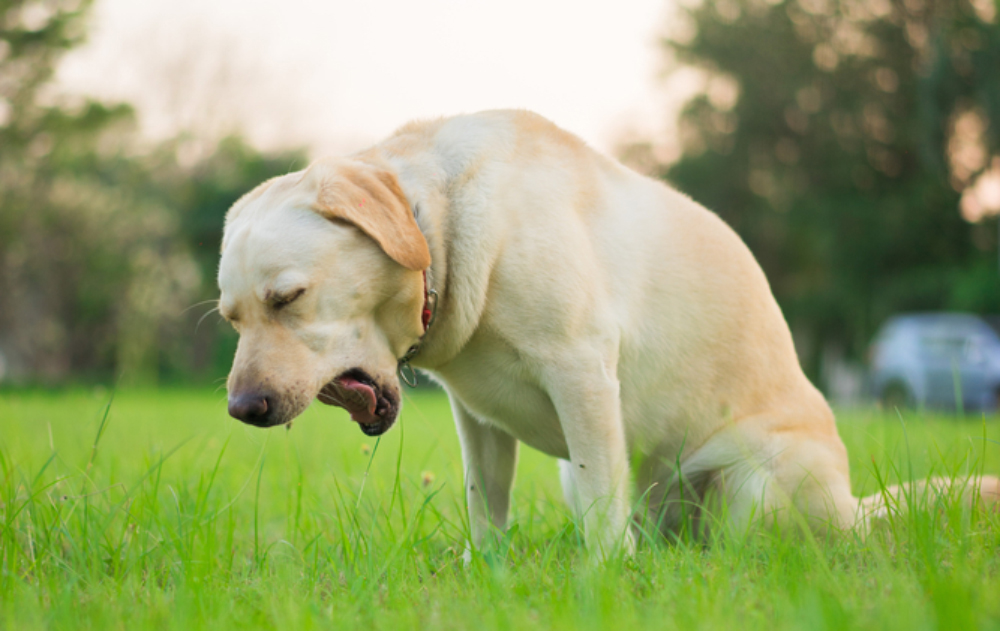

Regurgitation Versus Vomiting
Regurgitation can be confused with vomiting, however, there are differences between the two. First, let’s look at the signs associated with regurgitation.
- Regurgitation is a passive process that isn’t accompanied by abdominal contractions. Though it may be uncomfortable, it’s rarely considered painful for your pup.
- Regurgitation almost always happens immediately or very shortly after mealtime.
- The food your dog regurgitates looks and smells very similar to what they just ate and is just mixed with some saliva.
- Regurgitation usually hints at an issue with your dog’s esophagus.
- In some instances, regurgitation can be considered normal.
- Some breeds of dogs may have a higher predisposition to regurgitation. Breeds with a genetic predisposition include the Miniature Schnauzer and Wirehaired Fox Terriers. Brachycephalic dogs (those with flat faces), such as Pugs have an increased risk of developing several types of esophageal diseases, which can lead to regurgitation.
- Vomiting is an active process and is accompanied by abdominal contractions. It’s also usually associated with pain as well.
- Though vomiting may be associated with mealtimes, it may also happen at times that aren’t associated with meals.
- Vomit rarely looks like what your dog recently ate. It often appears and smells very different from what they’re fed and may also be mixed with digestive liquids (such as bile).
- Vomiting indicates issues with your dog’s digestive system beyond their esophagus. It may also be caused by issues with other body systems.
- Vomiting is not considered normal, no matter what the cause.
- No dog breed has a predisposition for vomiting.
Should You See a Vet?
If you notice your dog regurgitating occasionally (less than once a month or so) after they’ve quickly scarfed down on a large meal, it might not be a big deal. However, if you see the pattern repeating, or your dog who eats at a reasonable pace seems to be regurgitating, it’s recommended that you have a veterinarian inspect your pup as soon as possible.
A veterinarian should also be consulted if a recently weaned puppy is regurgitating, as this may be due to a congenital defect. It is important to remember that regurgitation isn’t a diagnosis, but rather a clinical sign.
If you are unsure if a vet visit is necessary, you can talk to a vet online for guidance on the next steps.
If you need to speak with a vet but can't get to one, head over to PangoVet. It's our online service where you can talk to a vet online and get the advice you need for your dog — all at an affordable price!
Common Causes of Regurgitation In Dogs
Regurgitation can be caused by many issues. Broadly speaking, the problem can be categorized as one of two: issues that cause a block in the esophagus, or issues and ailments that affect esophageal function.
Issues That May Block the Esophagus
- Foreign Bodies – If your dog swallows something that is lodged in their throat, it may result in regurgitation.
- Tumors – An abnormal growth, either benign (harmless) or malignant (cancerous) within or near the esophagus can narrow the esophagus and restrict the passage of food and water.
- Worms – A particular canine parasite known as Spirocerca lupi inhabits the esophagus of your pup and can lead to the formation of nodules along its esophagus. The worms may also physically inhibit the free space in the lumen of the esophagus. These worms are more commonly found in the southern parts of the United States.
- Congenital Defects – Some puppies are born with an anomaly that may lead to regurgitation. One such example is a persistent right aortic arch (PRAA). Puppies with a PRAA have abnormal blood vessels that form a tight ring around their esophagus, restricting the movement of food.
Issues with Esophagus Function
- Megaesophagus – This is not a diagnosis, but rather a sign defined as an abnormally wide esophagus lumen. Many diseases or disorders can lead to megaesophagus.
- Esophagitis – Inflammation of the esophagus can damage the muscles found in the esophagus, leading to regurgitation.
- Myasthenia Gravis – This is an autoimmune disorder that is accompanied by a reduction in the ability of the nervous system to properly maintain muscular function. Since the esophagus contracts with muscular assistance, impaired muscular function may lead to regurgitation.
- Endocrine diseases – Some endocrine diseases, such as Addison’s disease or Hypothyroidism may be accompanied by regurgitation as a clinical sign.
- Dysmotility disorders of the esophagus – Issues that affect the ability of the esophagus to work normally may lead to regurgitation.

The 6 Tips to Prevent Regurgitation In Dogs
1. Use Slow Feeders
Especially designed bowls that prevent your dog from eating too quickly may be useful and may slow down the pace at which your pup scarfs down their meals.
2. Try Puzzle Treat Dispensers
It may also help to place some portions of your dog’s food in interactive treat dispensers which only dispense a treat after your dog uses them correctly. Not only will this slow down their eating pace, but it also offers both physical and mental exercise for your pup.

3. Consider Hiring a Trainer
If your pup doesn’t behave during mealtime, the services of a dog trainer might prove useful. They may be able to retrain your dog and help improve their table manners.
4. Split Your Pup’s Meals
If your pup seems to be scarfing down large amounts of food in a very short period, try splitting their meals into several small feeding sessions per day.

5. Feed Your Dogs Separately
If you have multiple dogs and notice one of them quickly eating their food, they may be doing so out of anxiety and competition. Feeding your pups in separate rooms may help relax an anxious pup, allowing them to slow down the pace at which they eat. This may be a simple and easy fix, but it can greatly help.
6. Try Different Foods
If your pup can quickly eat their food, offering them food that takes slightly longer to chew before they can swallow a morsel may slow down the pace at which they eat. In turn, this may help prevent regurgitation. However, changing your dog’s diet should be something you do slowly, and with the guidance and approval of your veterinarian.


Final Thoughts
Regurgitation, though somewhat common, may be worrying for pet dog owners. If you notice your pup regurgitating its food frequently, your priority should be having them looked at by your veterinarian.
If your pup has no underlying health issues that cause their regurgitation episodes, there are several tricks you can use at home to try to prevent such episodes. We hope the tips we’ve offered in this article prove useful for your dog’s table manners.
Featured Image Credit: SeventyFour, Shutterstock



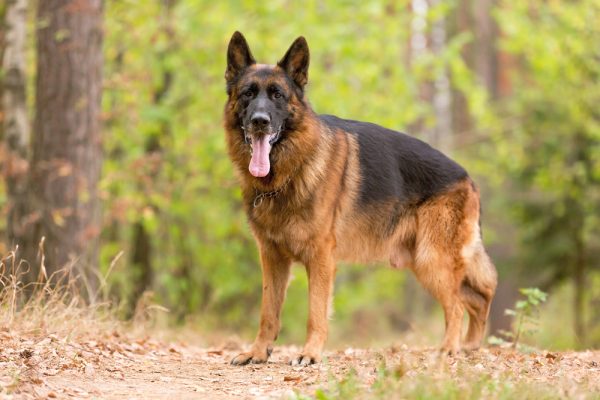

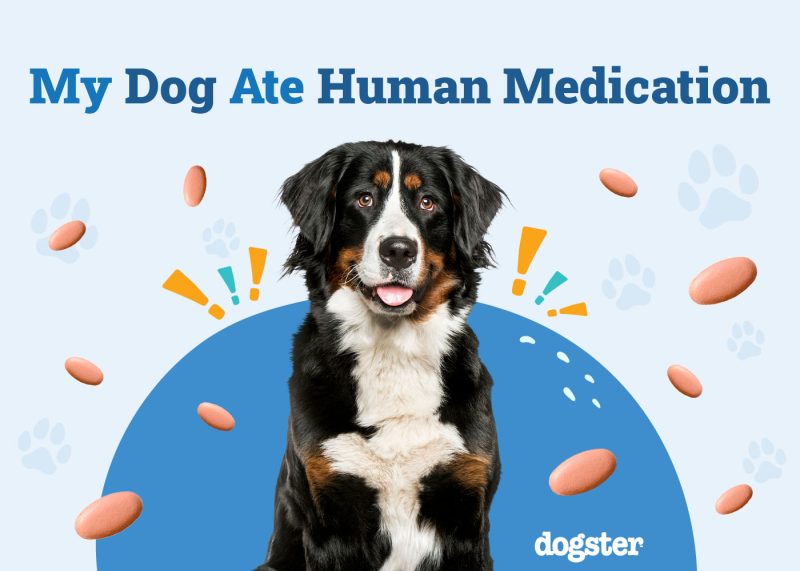
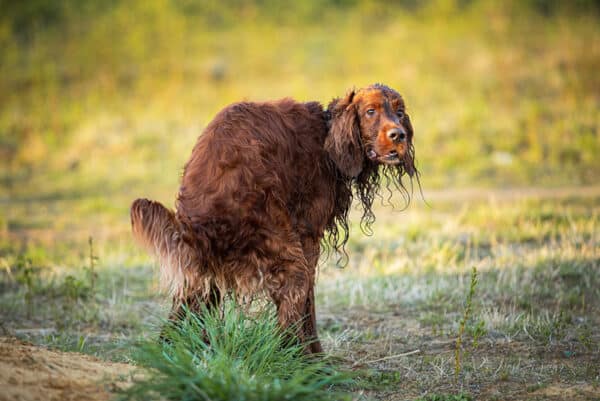
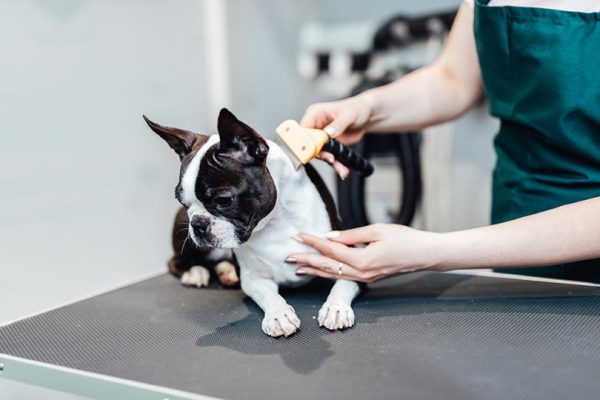

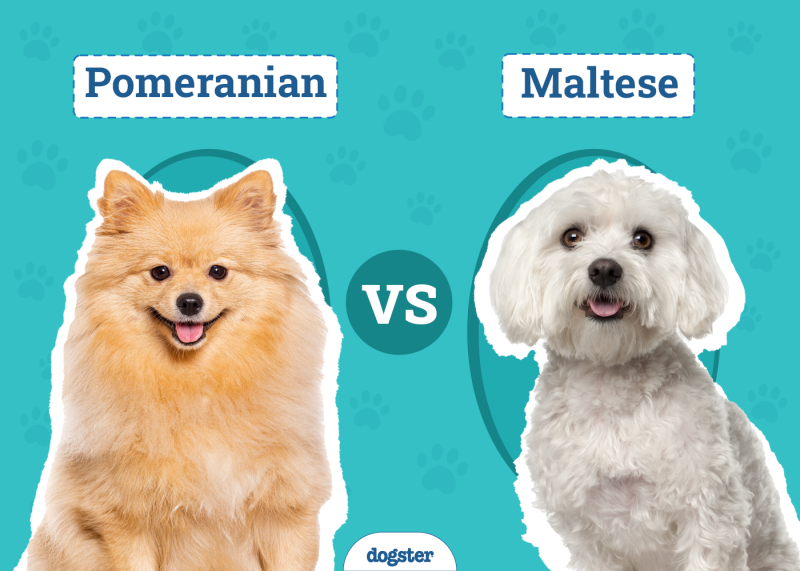
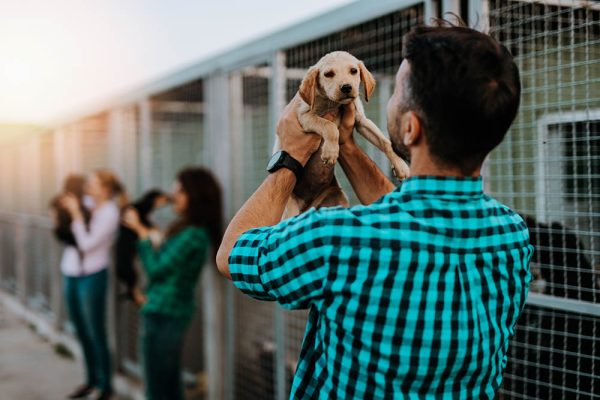
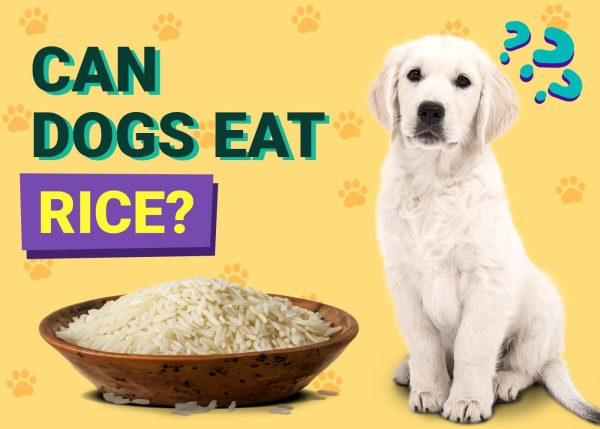
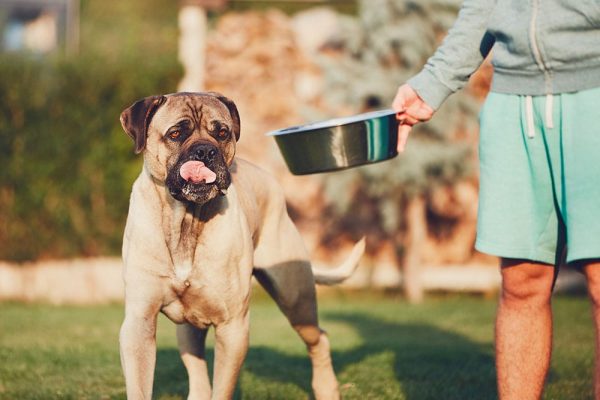
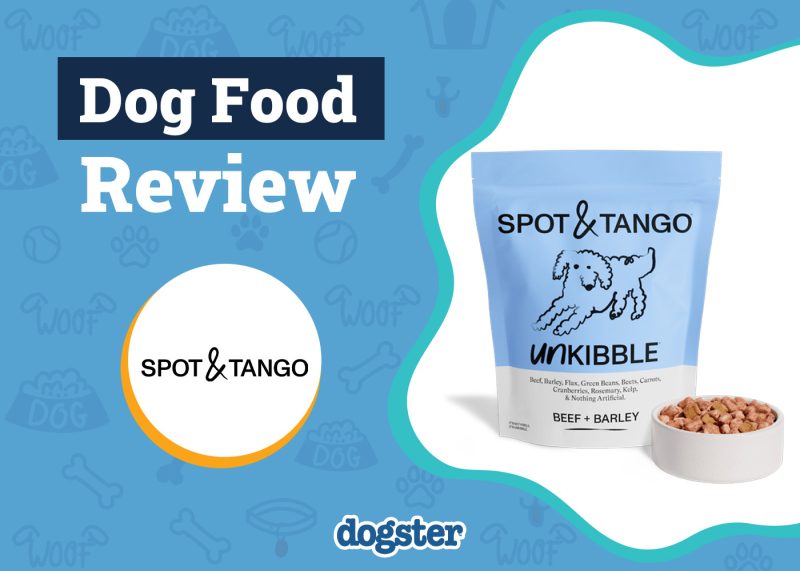
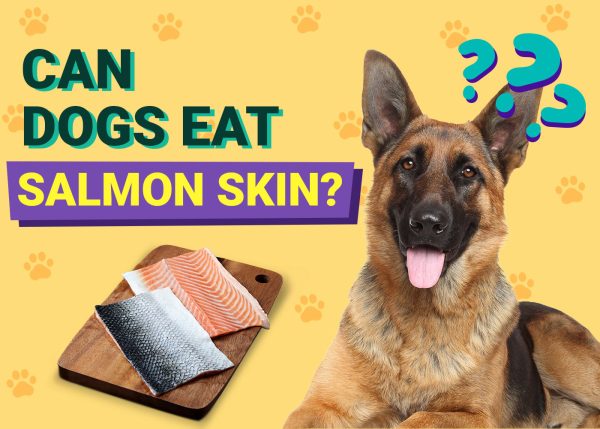
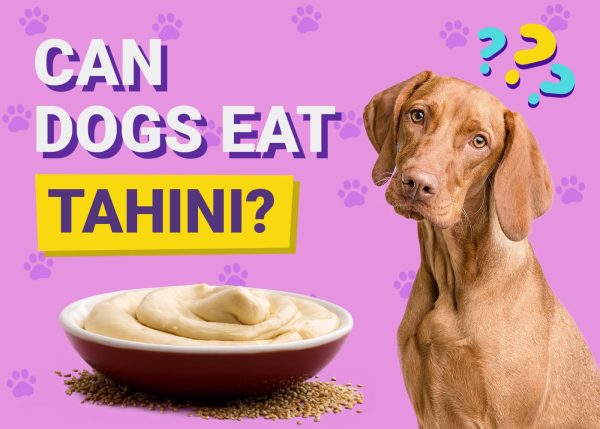
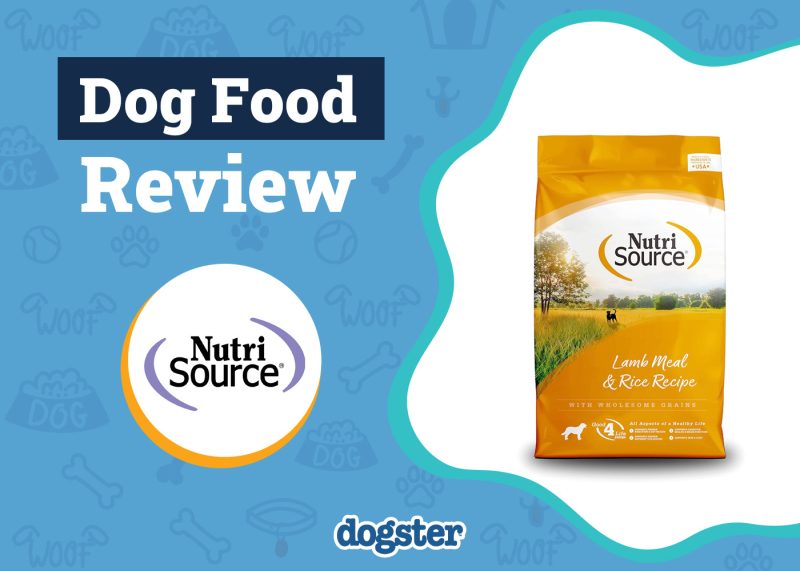

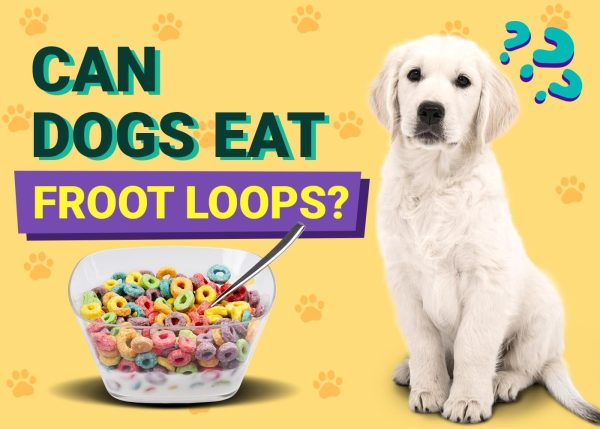



2 Responses
Our almost 5 month old female terrier mix was originally eating Hills science diet dry puppy food which were very small bites. I accidentally ordered a larger bag of what I thought was the same thing but turned out to be a lamb based food in bigger bites. Could this difference be a contributor to her regurgitating her meal and reeating it an hour or so after eating. In other words could the larger pieces being eaten too fast? She has no other issues. This happens every other day or so once a day lately.. Thanks.
Hi Patricia, it is possible that the larger kibble size is a contributing factor, if your puppy is eating too fast and not chewing properly, this can lead to regurgitation. Food transitions need to be done gradually to give the gut microbiome a chance to adapt. You could try feeding smaller and more frequent meals and a slow feeder bowl could be a good investment. Also, it is not recommended to feed adult food to a puppy as they have different nutritional needs to support their stage of life. I hope this helps 🙂